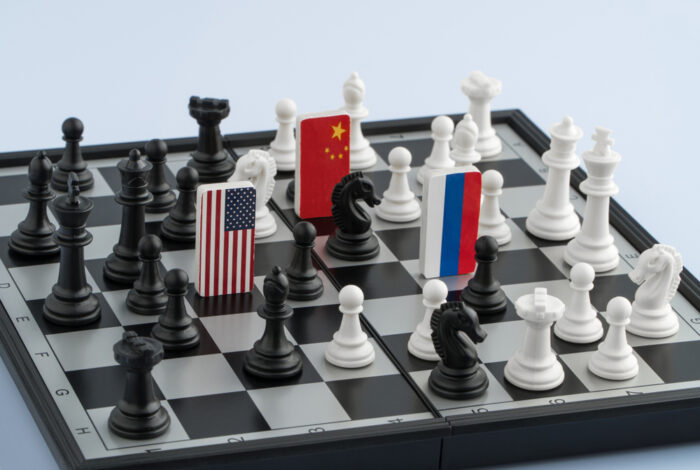Find all related Progressive Post
Progressive Post

On 17 February, the High Representative Josep Borrell and the European Commission released a Joint Communication on strengthening the EU’s contribution to rules-based multilateralism: on first sight a document in the continuity of previous ones, but also one that reveals important changes in how the EU sees itself on the international stage.
One might question the necessity of a new document to reiterate the EU’s commitment to multilateralism, since this has been enshrined as the guiding principle of its foreign and security policy in all major strategic documents of the last two decades. Yet, there are two good reasons why the Union should renew and qualify its multilateral approach to international affairs. The first, and more pressing one, is the need for coordinated action at global level to face the Covid-19 challenge and its consequences, be it sanitary, economic and social threats to the resilience of our societies. The second is the opportunity to re-join forces at the transatlantic level after the disruptive unilateral moment imposed by the Trump administration, and the return of the US to multilateral fora – from WHO to the Paris Agreement – initiated by President Biden.
Indeed, it is interesting to note that once again the EU’s assertiveness in promoting multilateralism comes as a reaction to a phase of its denial by its transatlantic ally. This had already been the case in 2003, when the then High Representative Javier Solana published the European Security Strategy, and the Commission its communication on the choice of multilateralism: two pivotal strategic documents that marked Europe’s distance from the unilateral US invasion of Iraq by the Bush administration.
Almost 20 years later, the EU chooses to do the same, with a similar aspiration to revitalise both multilateralism and its own role on the world stage. And in fact, the Joint Communication explicitly underlines the compatibility of the EU’s strategic priorities and objectives with a multilateral stance, “as the principles that underlie the EU are the same of those of the United Nations”. But how do the content and the spirit of this post-Covid and post-Trump communication on multilateralism differ from previous documents?
The first twist relates to the ‘why’ the EU should continue to embrace multilateralism. While the Communication reaffirms the EU’s engagement in promoting peace and security, together with fundamental rights, universal values and international law, it stresses that “these efforts go hand-in-hand with a more interests-based approach”. In line with, and taking to the extreme, the “principled pragmatism” in international affairs proposed by the 2016 EU Global Strategy, the Communication advocates for a more assertive EU that uses multilateralism as a means to achieve concrete policy priorities. With it, the EU seems to embrace a more realistic and less normative stance in its external action, thus acknowledging the inescapable emergence of a multipolar world, the transactional nature of the global system and the prevalence of power politics. This also adheres to the belief that the EU needs to become more geopolitical, as EC President von der Leyen has pledged in her vision of the mandate of the European Commission – even though this, for the moment, is still more an aspiration than a reality.
The next turn concerns the ‘how’ the EU should pursue its multilateral agenda. Crucial attention is placed on “extending international norms, standards and cooperation” on issues ranging from rule of law to international taxation, from digital cooperation to consumer protection to environmental degradation. It is intended as a way to cope with the proliferation of powerful norm-shapers that operate outside institutionalised channels, like digital platforms and multinationals, thus requiring an “active regulatory cooperation” at global level and “more ambitious standards and rules” to tackle disinformation, digital finance and internet governance.
It is also stated that the EU should work to “reform what needs to change”. Interestingly, a well-deserved attention is devoted to the strengthening of institutions such as the WHO and the WTO, but it is not accompanied by a similar focus on the UN Security Council, for which the Communication talks about a general commitment to a comprehensive reform. It seems that, after the repeated unsuccessful attempts of the past, the EU has given up on the need to equip the global order with a functioning, legitimising peace and security body. And yet, there are a number of reform proposals that could be promoted by the EU which do not require a hard-won amendment of the UN Charter and could become flagship initiatives to enhance its role within the UN, as suggested by a recent FEPS report drafted by the Istituto Affari Internazionali (IAI).
Finally, the Communication diverges on the past approach on the ‘what’ in two main respects. It insists much more than previous documents on the need to focus on the internal “coherence, unity and solidarity” of the EU as a condition for a more effective external action, thus recognising the unprecedented challenges impacting the European project and the increased urgency of an enhanced coordination among institutions and member states. Furthermore, it proposes a sort of ‘modular multilateralism’, centred on a stronger cooperation with like-minded partners – first and foremost the US – to defend universal principles and rules, and complemented by issue-based partnerships with interested actors on transnational issues such as climate change, education, and technology.
Overall, the Joint Communication presents in an honest way the gaps and opportunities in a world in transition, “more unpredictable and unequal”, and dominated by the competition of “visions and agendas”. It offers a candid assessment of the EU’s fragility and puts forward some solid proposals to implement its commitment to multilateralism but does not go deep enough into the analysis of its potentialities, in particular on the reform of the UN. The current circumstances impose a healthy dose of realism but navigating the future will require an additional injection of dynamism and ambition.
| Cookie | Duration | Description |
|---|---|---|
| cookielawinfo-checkbox-advertisement | 1 year | Set by the GDPR Cookie Consent plugin, this cookie is used to record the user consent for the cookies in the "Advertisement" category . |
| cookielawinfo-checkbox-analytics | 11 months | This cookie is set by GDPR Cookie Consent plugin. The cookie is used to store the user consent for the cookies in the category "Analytics". |
| cookielawinfo-checkbox-functional | 11 months | The cookie is set by GDPR cookie consent to record the user consent for the cookies in the category "Functional". |
| cookielawinfo-checkbox-necessary | 11 months | This cookie is set by GDPR Cookie Consent plugin. The cookies is used to store the user consent for the cookies in the category "Necessary". |
| cookielawinfo-checkbox-others | 11 months | This cookie is set by GDPR Cookie Consent plugin. The cookie is used to store the user consent for the cookies in the category "Other. |
| cookielawinfo-checkbox-performance | 11 months | This cookie is set by GDPR Cookie Consent plugin. The cookie is used to store the user consent for the cookies in the category "Performance". |
| csrftoken | past | This cookie is associated with Django web development platform for python. Used to help protect the website against Cross-Site Request Forgery attacks |
| JSESSIONID | session | The JSESSIONID cookie is used by New Relic to store a session identifier so that New Relic can monitor session counts for an application. |
| viewed_cookie_policy | 11 months | The cookie is set by the GDPR Cookie Consent plugin and is used to store whether or not user has consented to the use of cookies. It does not store any personal data. |
| Cookie | Duration | Description |
|---|---|---|
| __cf_bm | 30 minutes | This cookie, set by Cloudflare, is used to support Cloudflare Bot Management. |
| S | 1 hour | Used by Yahoo to provide ads, content or analytics. |
| sp_landing | 1 day | The sp_landing is set by Spotify to implement audio content from Spotify on the website and also registers information on user interaction related to the audio content. |
| sp_t | 1 year | The sp_t cookie is set by Spotify to implement audio content from Spotify on the website and also registers information on user interaction related to the audio content. |
| Cookie | Duration | Description |
|---|---|---|
| CONSENT | 2 years | YouTube sets this cookie via embedded youtube-videos and registers anonymous statistical data. |
| iutk | session | This cookie is used by Issuu analytic system to gather information regarding visitor activity on Issuu products. |
| s_vi | 2 years | An Adobe Analytics cookie that uses a unique visitor ID time/date stamp to identify a unique vistor to the website. |
| Cookie | Duration | Description |
|---|---|---|
| NID | 6 months | NID cookie, set by Google, is used for advertising purposes; to limit the number of times the user sees an ad, to mute unwanted ads, and to measure the effectiveness of ads. |
| VISITOR_INFO1_LIVE | 5 months 27 days | A cookie set by YouTube to measure bandwidth that determines whether the user gets the new or old player interface. |
| YSC | session | YSC cookie is set by Youtube and is used to track the views of embedded videos on Youtube pages. |
| yt-remote-connected-devices | never | YouTube sets this cookie to store the video preferences of the user using embedded YouTube video. |
| yt-remote-device-id | never | YouTube sets this cookie to store the video preferences of the user using embedded YouTube video. |
| yt.innertube::nextId | never | This cookie, set by YouTube, registers a unique ID to store data on what videos from YouTube the user has seen. |
| yt.innertube::requests | never | This cookie, set by YouTube, registers a unique ID to store data on what videos from YouTube the user has seen. |
| Cookie | Duration | Description |
|---|---|---|
| COMPASS | 1 hour | No description |
| ed3e2e5e5460c5b72cba896c22a5ff98 | session | No description available. |
| loglevel | never | No description available. |


